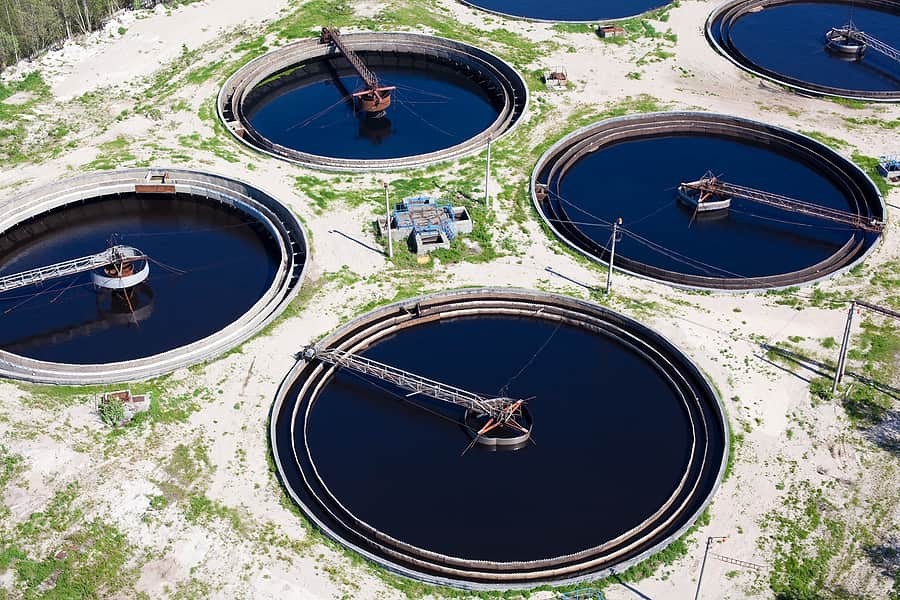News
UK Water Infrastructure Costs ‘Overinflated’
Water industry watchdog Ofwat has confirmed that it is now reviewing data indicating that water retailers are overinflating the costs of building vital infrastructure and spending many times more than operators in other countries, leading to significant bill increases.
Customer bills will climb by £123 on average this year, with further hikes to come over the next five years.
Suppliers say that these increases are necessary in order to carry out necessary pipework upgrades and to prevent sewage spills from contaminating rivers, lakes and streams… and yet several companies have put complaints into the Competition and Markets Authority that the bill increases don’t go far enough.
A report from campaign group Windrush Against Sewage Pollution – reported on by the Guardian – found that sewage works upgrades in Oxford would cost £435 million, more than ten times the original £40 million quoted when the project was first put forward.
In contrast, a new sewage works in Assens in Denmark cost the comparatively small sum of £29 million, in a place where the cost of living is on average 13 per cent higher than in the UK and where water and sewerage costs are among the highest in Europe.
Ashley Smith, author of the study, was quoted by the news source as saying: “Our research mainly covered Thames Water but the fact that the breathtakingly high prices claimed to pay for capital projects has not rung any alarm bells at Ofwat, where they just benchmark the companies against each other, suggests this is a national issue.
“When you look at the comparison between what you can get, for example in Denmark and the US, what you can buy with £435 million, that cost can only be regarded as a rip-off.”
A widespread issue
Similarly, campaign group Save Windermere found that other companies in England are spending hefty amounts for upgrades, such as the near-£13 million spent on extending a sewage outfall into the lake by 150m.
Anglian Water, meanwhile, is spending £400 million on sewage treatment works replacements in Cambridge.
Experts have put rising infrastructure costs down to privatisation, which has meant that water companies are less incentivised to find value for money for customers, as well as being allowed to borrow more money based on asset valuation.
Paul Jeffrey, water management professor at the Cranfield Water Science Institute, explained: “There are several good reasons why the amount of money [the water companies] need to spend has risen sharply in recent years.
“The sector is privatised and is set up to allow companies to recover their investments given fulfilment of a tranche of performance metrics.”
He went on to say that significant raw material price volatility, coupled with sustainability, carbon neutrality and enhanced resilience ambitions are also helping to push up infrastructure project delivery costs across the civil engineering sector, including water, transport, energy and nuclear.
“This isn’t to say that the sector can’t improve the efficiency of its capital projects, a point that has been made by the National Infrastructure Commission on several occasions,” Mr Jeffrey concluded.
How can businesses keep water bills down?
This year has seen an increase in wholesale business water rates across all regions in order to fund water infrastructure investments over the next five years, applicable to default business water rates (which around 80 per cent of companies in the UK pay).
These increases are being pushed through off the back of approval by Ofwat of a £104 billion investment to fund upgrades to sewage works, nutrient reduction, reservoir construction, smart meter rollout and measures to offset higher costs of electricity prices for businesses.
Water bills can be a significant business overhead, depending on the nature and size of your organisation, so finding ways to keep costs down can make a very real difference to your bottom line.
One of the best ways to reduce your bills is to compare business water rates to find a better, more cost-effective deal with a different supplier.
It’s easy to assume that you’re already on the best water deal available but it’s possible that you’re paying high default rates, so check your latest bill to see what you’re paying and if you could enjoy better tariffs elsewhere.
If you’re not sure where to begin, get in touch with the H2o Building Services team today to see how we can help you save both water and money now and well into the future.
